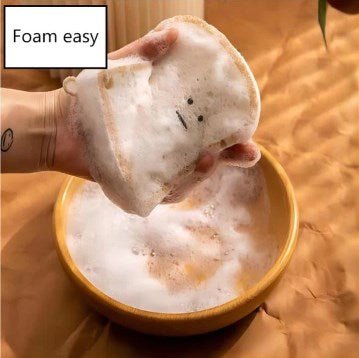You can keep your sponges clean and safe for use in three different ways.
Sponges have the potential to spread harmful bacteria throughout your kitchen, making it essential to sanitize them. Because sponges retain moisture and do not dry out between uses, they provide an ideal environment for bacteria to grow. However, you can safely clean and sanitize a sponge by following certain guidelines. There are three effective ways to sanitize a sponge: using your microwave, dishwasher or a sanitizing solution.
To sanitize your sponges in the microwave, follow these simple rules:
- Do not disinfect/sanitize sponges that have metallic scrub pads in the microwave; instead, clean and sanitize them in a dishwasher.
- Ensure the sponge is completely wet before microwaving it. If it's dry, it could catch fire.
- Microwave the wet sponge on high for one minute. One minute of microwaving is enough to kill bacteria.
- Be cautious when removing the sponge from the microwave because it will be hot. Consider setting a timer for 10-15 minutes and then taking the sponge out of the microwave when it has cooled.
Another way to clean and sanitize your sponges is to use your dishwasher, but once again there are some rules to follow:
- Use the hottest and longest cycle on your dishwasher.
- Use the dry cycle.
According to the United States Department of Agriculture (USDA), microwaving sponges kills 99.99999 percent of bacteria present on them, while dishwashing kills 99.9998 percent of bacteria.
A third method for sanitizing your sponges is as follows:
- Use a solution of one-quarter to one-half teaspoon of concentrated bleach (8.25 percent sodium hypochlorite) per quart of warm water (not hot).
- Soak the sponge for one minute.
When wiping up raw juices from meats, which can contain high levels of bacteria, use clean paper towels and dispose of them immediately. Sanitize your counters with a solution of one-quarter to one-half teaspoon of concentrated chlorine bleach in one quart of water. Spray this solution on the counters and let it dry or wipe it on with a clean cloth, then allow the counters to air-dry.
Michigan State University Extension recommends using a clean dishcloth each day. When dishcloths or sponges begin to emit an unpleasant odor, it may be due to the accumulation of bacteria.
Keeping your sponges or dishcloths as sanitary as possible is crucial for ensuring a clean kitchen and, ultimately, the health of you and your family.




Leave a comment
All comments are moderated before being published.
This site is protected by hCaptcha and the hCaptcha Privacy Policy and Terms of Service apply.